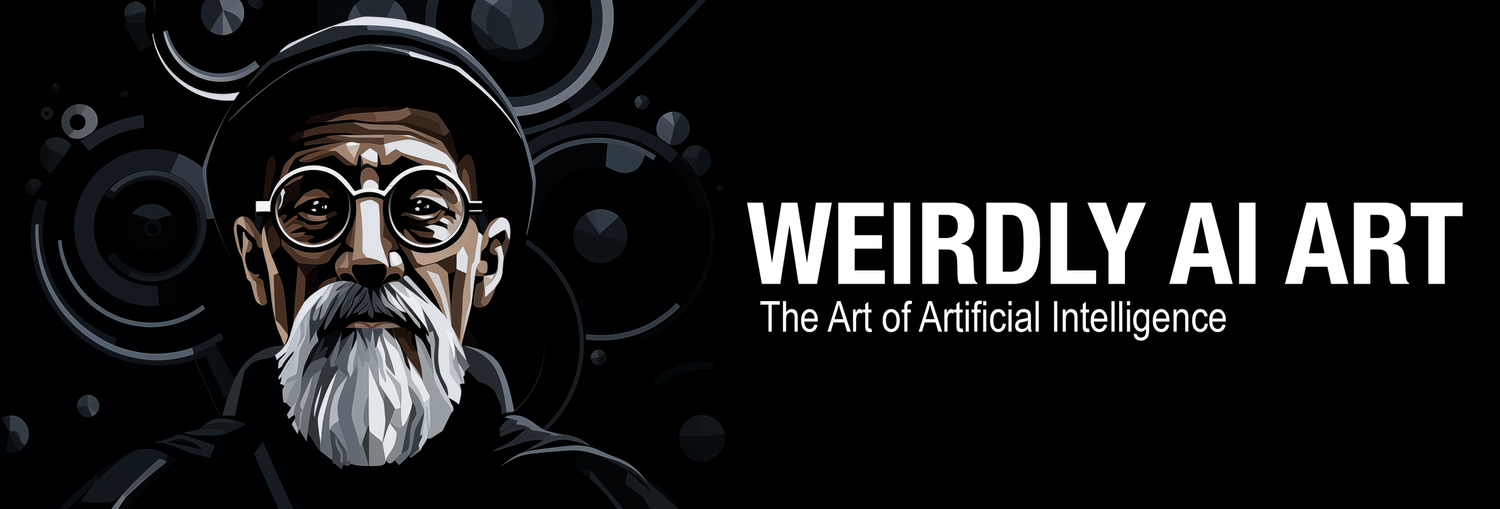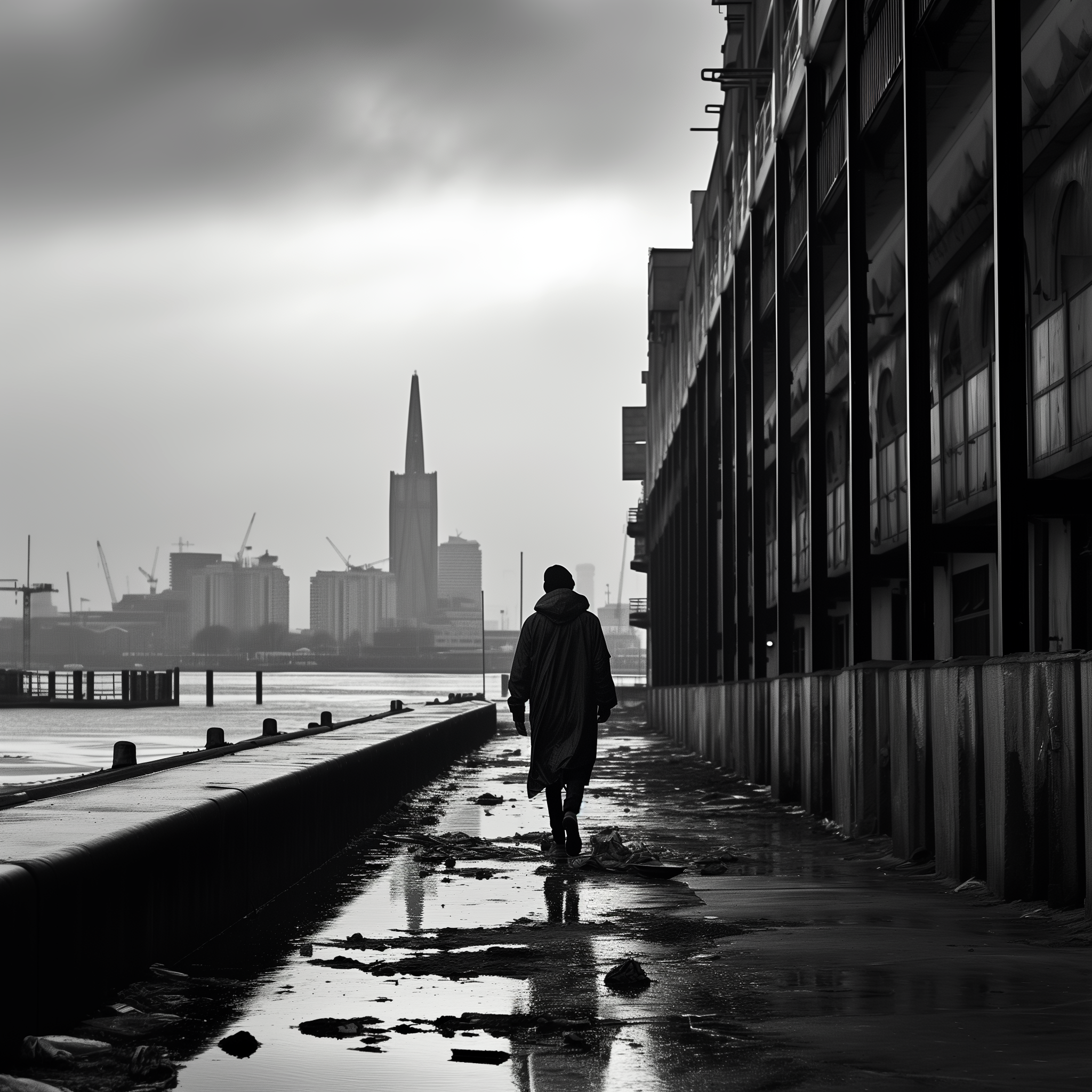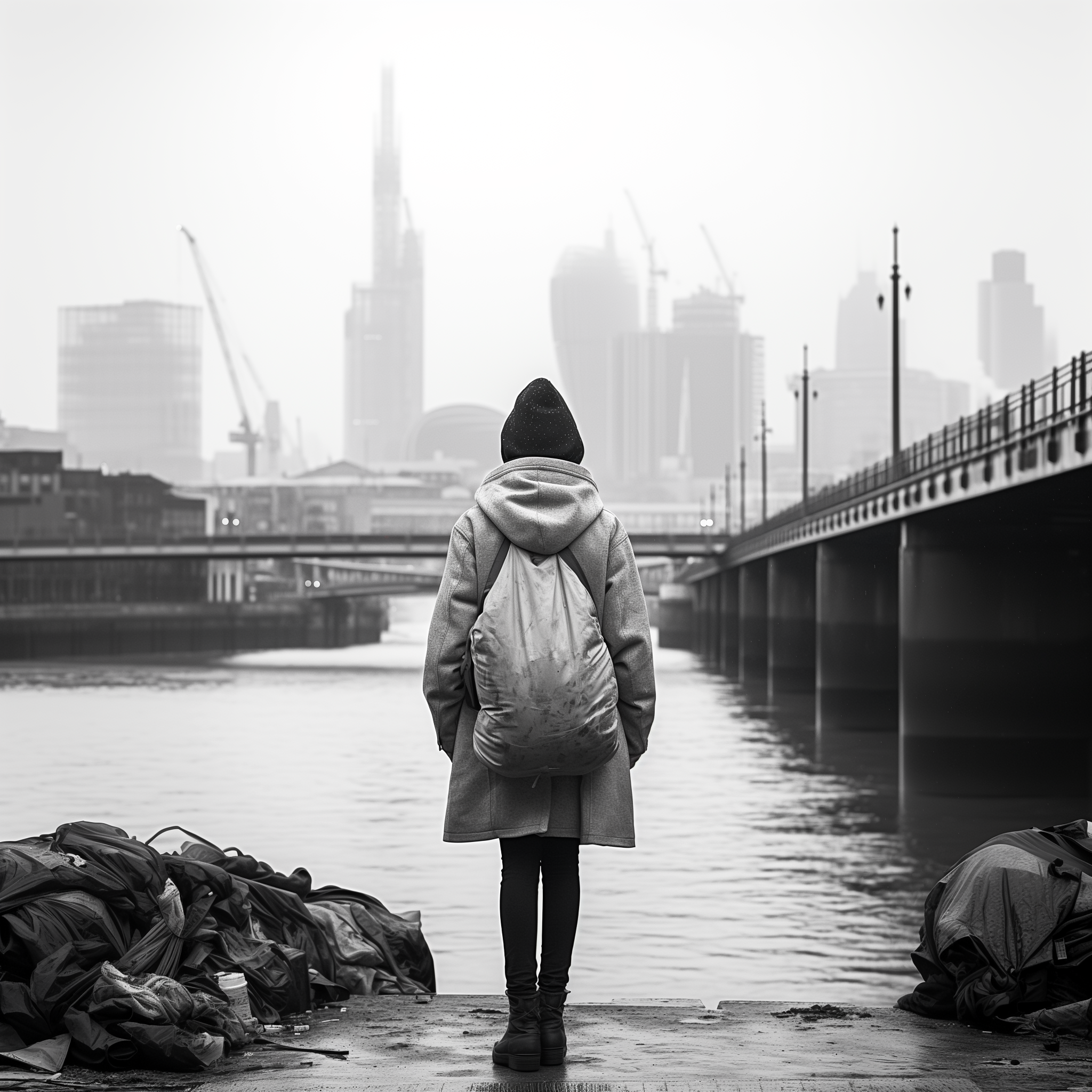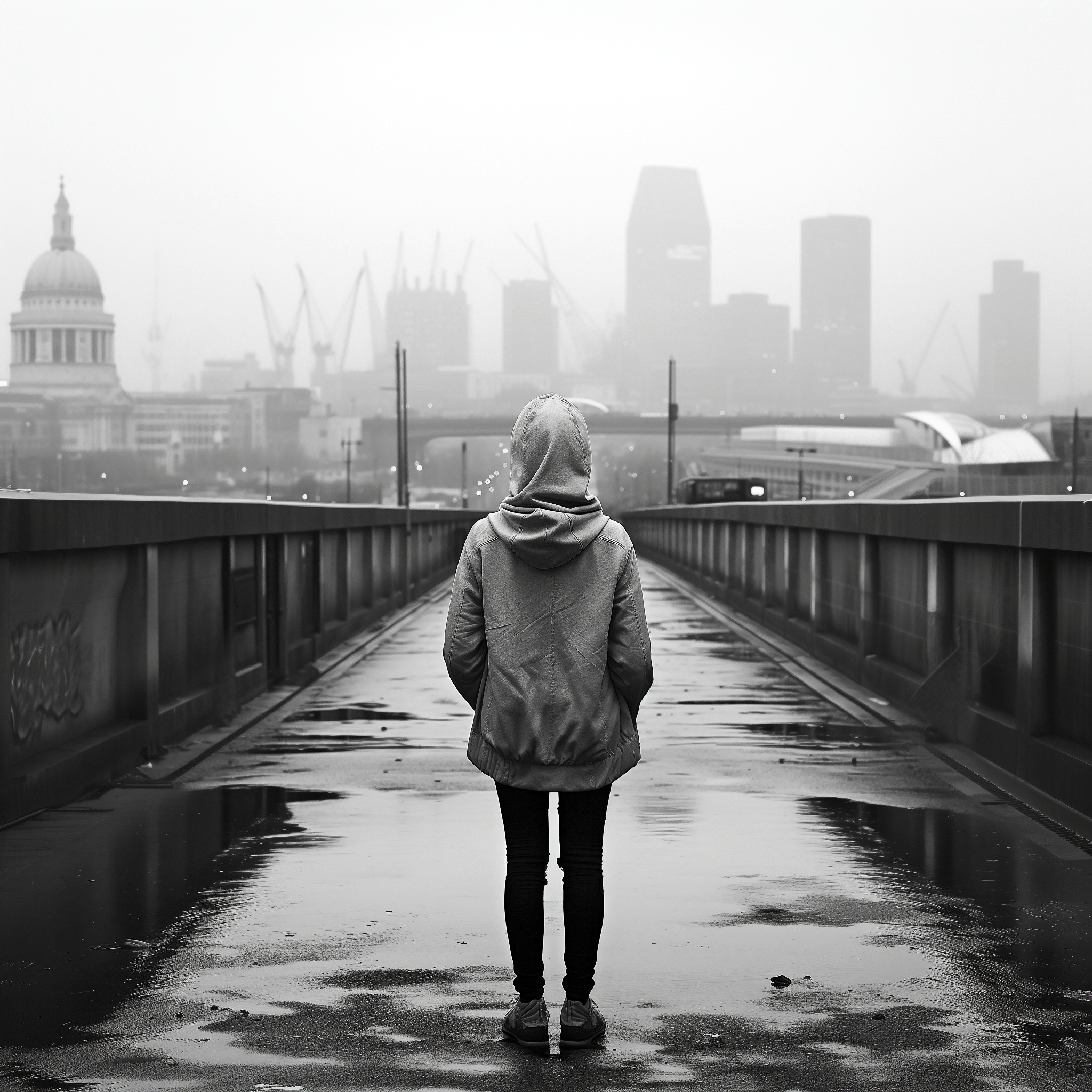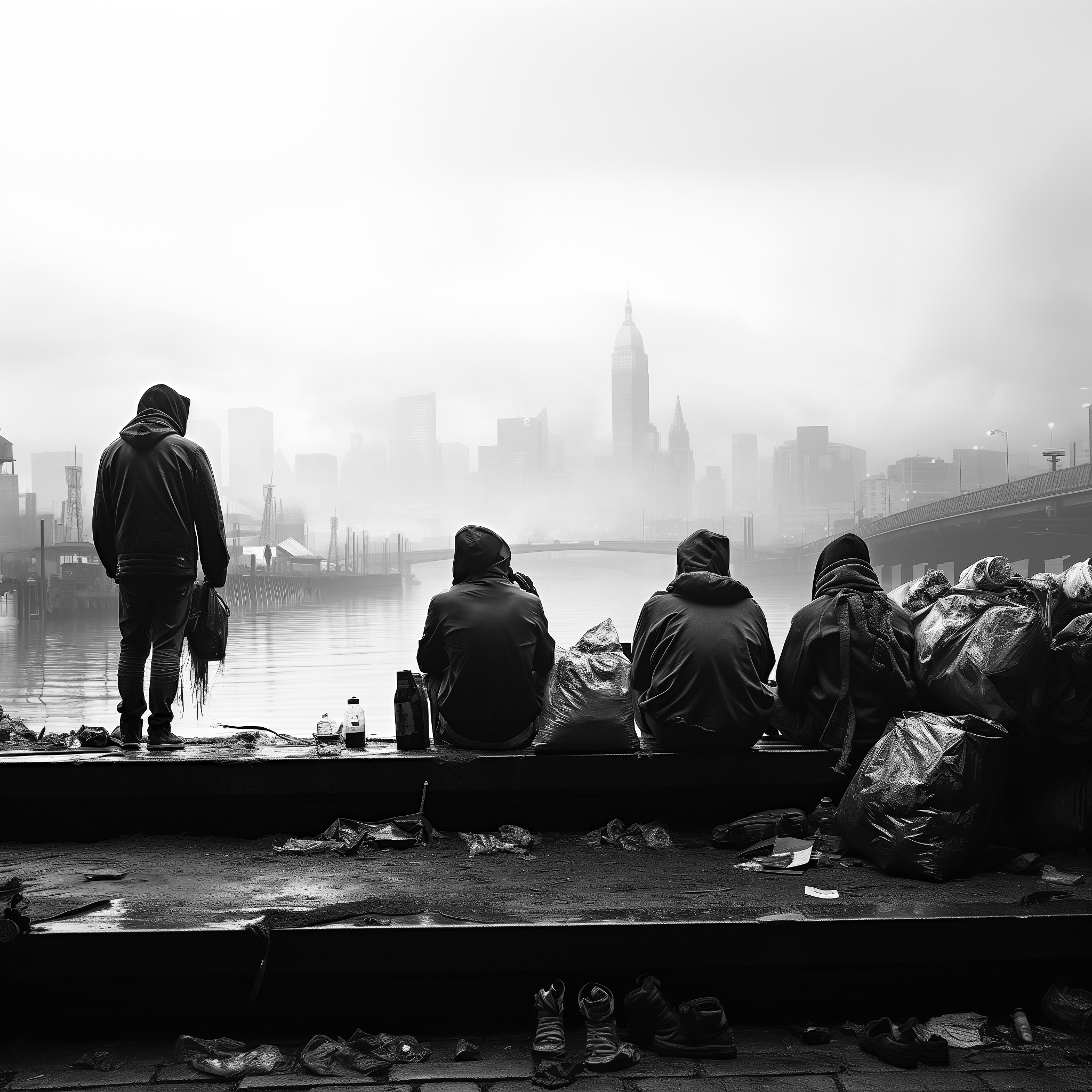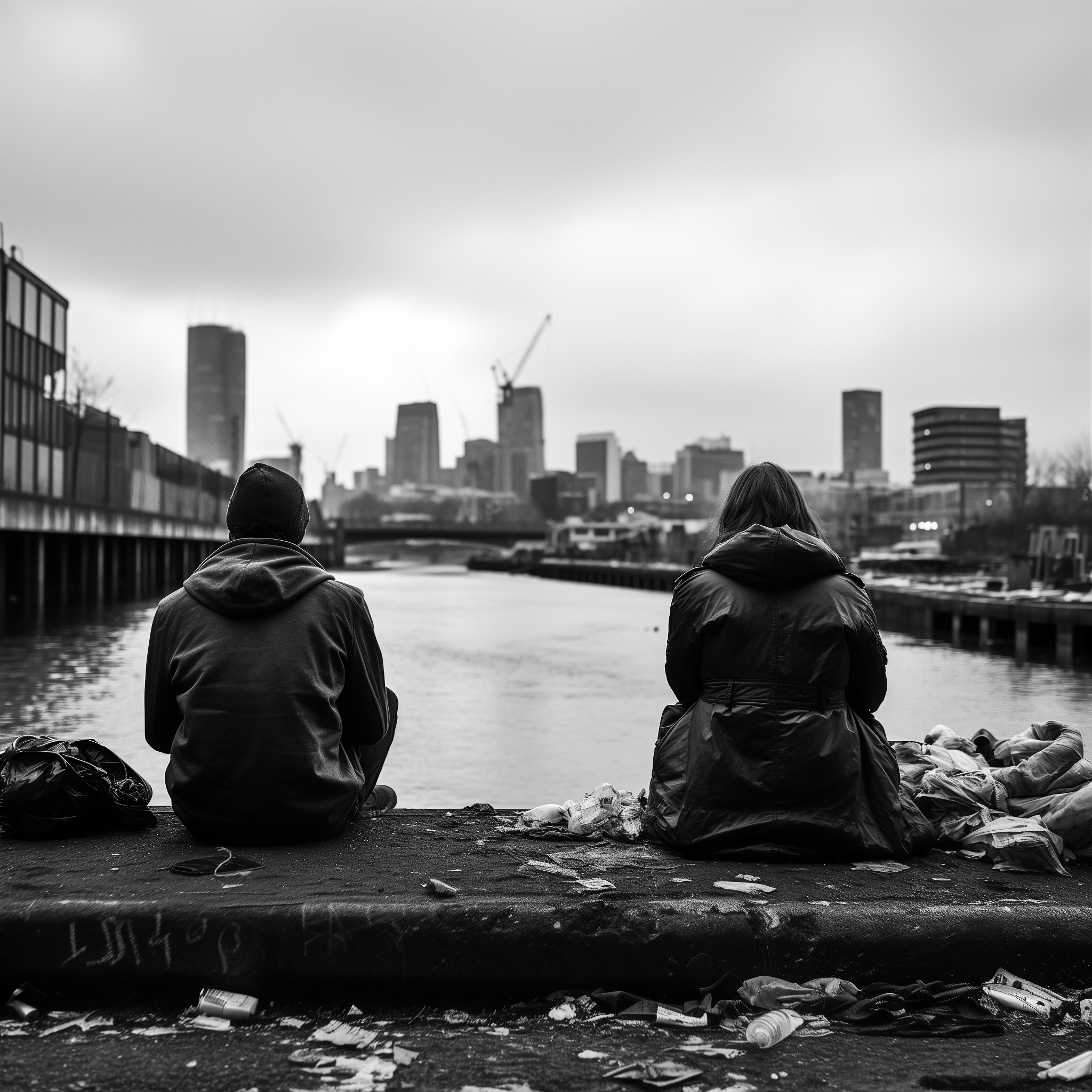MENTAL HEALTH
(Series 04)
’THE WRONG SIDE OF THE RIVER’
AI-CREATED IMAGERY
© Weirdly AI Art 2024
Being homeless and metaphorically born on the "other side of the river" can have profound and detrimental effects on one's mental health and self-esteem. Homelessness often exposes individuals to harsh living conditions, uncertainty, and social isolation, which can lead to a range of mental health challenges, including depression, anxiety, and post-traumatic stress disorder. The constant struggle for survival can erode self-esteem, leaving individuals feeling helpless and unworthy.
Metaphorically being on the "wrong side of the river" can also exacerbate these issues. It represents a sense of exclusion, inequality, and systemic barriers that limit opportunities. This can create a profound feeling of hopelessness and societal disconnection, further diminishing self-esteem.
Addressing these challenges requires comprehensive support systems, including access to safe housing, mental health services, and opportunities for skill development and employment. Recognising the dignity and worth of all individuals, regardless of their circumstances, is essential in fostering resilience and improving mental health and self-esteem for those facing homelessness or systemic disadvantages.
